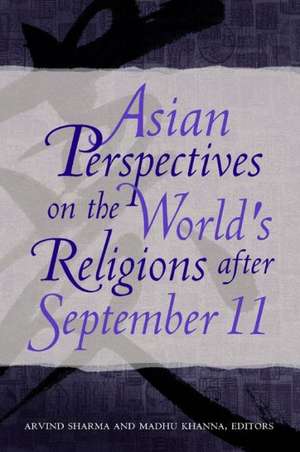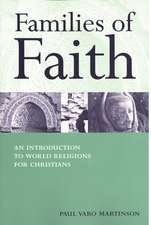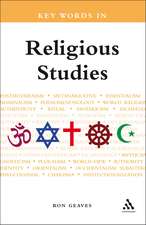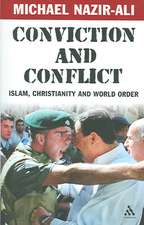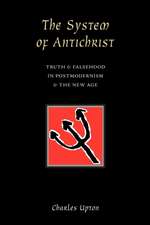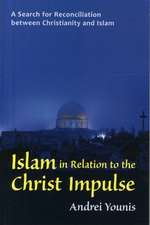Asian Perspectives on the World's Religions after September 11
Editat de Arvind Sharma, Madhu Khannaen Limba Engleză Hardback – 14 feb 2013 – vârsta până la 17 ani
Preț: 323.44 lei
Preț vechi: 482.44 lei
-33% Nou
Puncte Express: 485
Preț estimativ în valută:
61.90€ • 67.21$ • 51.99£
61.90€ • 67.21$ • 51.99£
Carte tipărită la comandă
Livrare economică 23 aprilie-07 mai
Preluare comenzi: 021 569.72.76
Specificații
ISBN-13: 9780313378966
ISBN-10: 0313378967
Pagini: 272
Dimensiuni: 156 x 235 x 23 mm
Greutate: 0.59 kg
Ediția:New.
Editura: Bloomsbury Publishing
Colecția Praeger
Locul publicării:New York, United States
ISBN-10: 0313378967
Pagini: 272
Dimensiuni: 156 x 235 x 23 mm
Greutate: 0.59 kg
Ediția:New.
Editura: Bloomsbury Publishing
Colecția Praeger
Locul publicării:New York, United States
Notă biografică
Arvind Sharma, PhD, is the Birks Professor of Comparative Religion in the faculty of religious studies at McGill University, Montreal, Canada. Sharma is editor of Praeger's four-volume set The World's Religions after September 11.Madhu Khanna is professor of comparative religion at the Center for the Study of Comparative Religion and Civilizations at the Jamia Millia Islamia University, New Delhi, India, and is also affiliated with the Indira Gandhi National Centre for the Arts.
Cuprins
IntroductionArvind SharmaThe Idea of AsiaMadhu Khanna1. "Civilizational Dialogues" through Popular Frames Post 9/11Anuradha Ghosh2. Jainism: The Way to Lasting Peace through Pluralistic UnderstandingAshok Vohra3. Tolerance in Early Buddhism: Ideation, Praxis, and Fault LinesAhmad Sohaib4. Suffering as a Catalyst for Spiritual Development: The Islamic PerspectiveI. H. Azad Faruqi5. From the Cakravartin Ideal to Realpolitik: Buddhism and Confucianism in the Premodern Chinese Context and Its Implications for Contemporary Chinese Secular Policy toward ReligionAlbert Welter6. From Oriental Utopia to Business Ethics: Europe's Search for New Socioeconomic Paradigms in Eastern Religions and PhilosophiesGerrit De Vylder7. The South Asian Impact upon Traditional Malay TheaterGhulam-Sarwar Yousof8. Javanese Narrations of Ramayan.a and Mahabharata: Products of a Peaceful Process of IntegrationMalini Saran9. Multilingual Scholarship in the Study of ReligionJoseph T. O'Connell10. Politicization of Religion and Its Possible Impact on the Academic Study of Religion in IndiaMadhu Khanna11. Human Rights in Cross-Cultural PerspectiveJoseph Prabhu12. The Concept of Religious FreedomArvind Sharma13. Vietnam Central Highlands at the Crossroads: Globalization, Development, Sustainability, and Cultural IdentityTran My-Van14. Religion as a Possible Impediment to Environmental DiscourseBidisha Kumar and George James15. Acculturation of the Tribals in North India during the British Colonial Period: An Ethnographic PerspectiveRadha Madhav Bharadwaj16. Ecological Cosmology in Hindu Tradition for the 21st CenturyRana P. B. SinghAbout the Editors and ContributorsIndex
Recenzii
Sixteen papers cover several topics regarding Asian perspectives on the world's religions after September 11th. Individual topics include the Islamic perspective, Jainism, tolerance of early Buddhism, and the concept of religious freedom.
